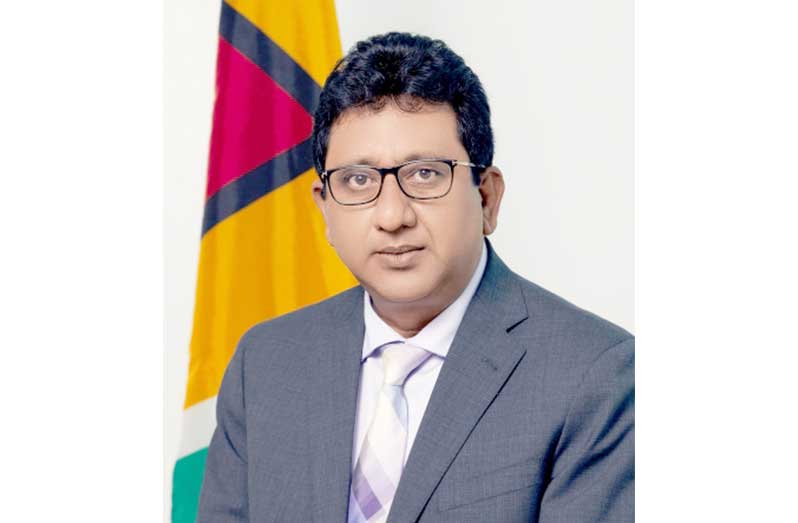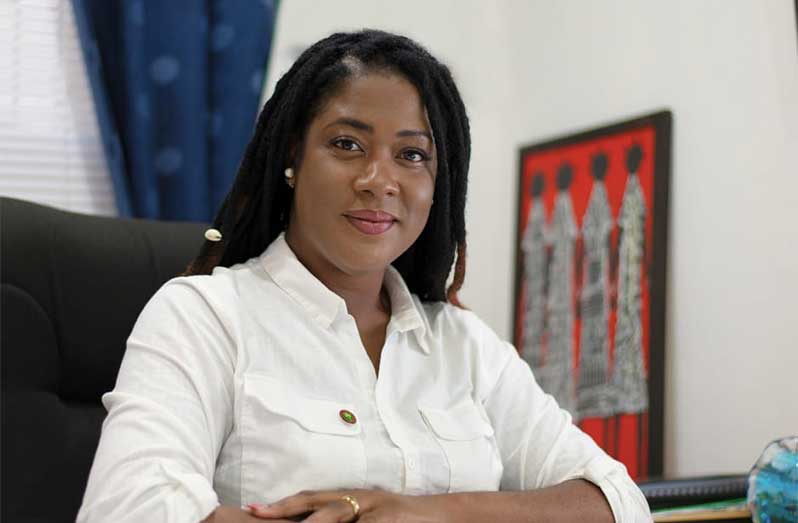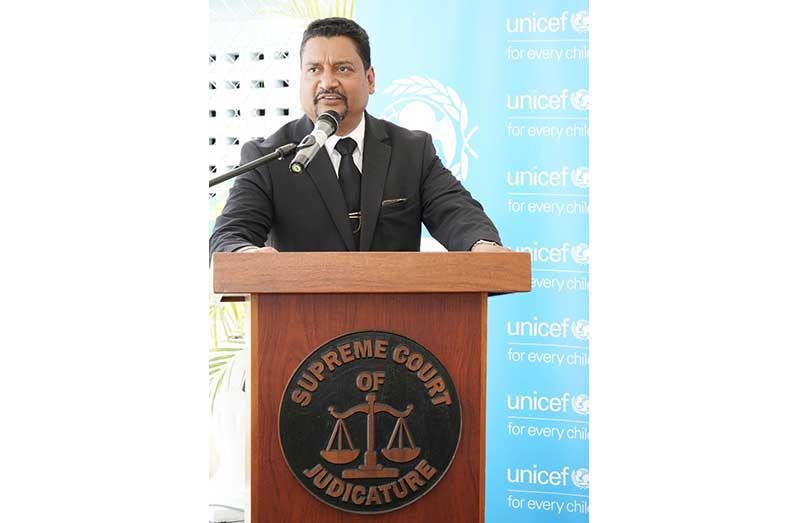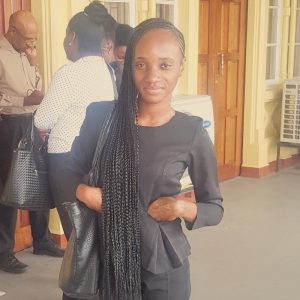— Chief Justice pledges ruling by week’s end
THE Demerara High Court has adjourned arguments in a high-profile constitutional case against the Guyana Elections Commission (GECOM), following a request from the applicant’s attorney for additional time to examine the commission’s defence.
The matter is now set for a full hearing on Tuesday, August 26, coming less than a week before the General and Regional Elections are held. Guyanese are set to head to the polls on Monday, September 1.

Chief Justice (ag) Navindra Singh convened proceedings in the matter of Krystal Hadassah Fisher v the Guyana Elections Commission (GECOM), a case brought by Fisher on behalf of the Forward Guyana Movement (FGM), whose presidential candidate is attorney Amanza Walton-Desir.
FGM is made up of three distinct political entities: Forward Guyana (FG), The People’s Movement (TPM), and the Vigilant Political Action Committee (V-PAC). FG is led by Walton-Desir, TPM is headed by Apostle Nigel London, while the V-PAC is chaired by businessman Dorwain Bess.
Fisher’s attorney Dr Vivian Williams, told the court he had only received GECOM’s affidavit on Sunday evening and, owing to travelling from the United States of America (USA), had not been able to study it in detail. While noting he was prepared to begin, he requested a brief adjournment. Justice Singh granted the request but underscored his intention to deliver a ruling before the week’s end, setting aside Tuesday for a full day of arguments. “We will finish this matter this week; I can assure you. I intend to have a ruling in this case this week,” he assured.
Attorney Arudranauth Gossai appeared on behalf of GECOM, standing in for Senior Counsel Anthony Astaphan. The state was represented by Attorney General Anil Nandlall, assisted by Deputy Solicitor General Shoshanna Lall and State Counsel Raeanna Clarke. The AG was formally added as a party to the case, with no objections from the applicant.
Nandlall told the court he would not be filing an affidavit, noting that the case hinges entirely on points of law and does not require evidence beyond what GECOM has already submitted.
Last week, the FGM candidate moved to the High Court seeking to block the elections unless GECOM includes the party’s list of candidates on the ballots in all 10 electoral regions.
She is asking the court to declare that GECOM’s current practice—excluding parties from ballots in regions where they are not contesting Regional Democratic Council (RDC) seats—violates constitutional guarantees of equal suffrage and representative democracy.
FGM maintained that GECOM’s refusal to include its candidates on ballots in Regions Seven, Eight, and Nine denies its constitutional right to contest free and fair elections and restricts voters’ right to choose. The party argued that the system disadvantages smaller and emerging political movements, distorting proportional representation and undermining inclusionary democracy.
It is seeking multiple declarations against GECOM, including that its exclusion is discriminatory, unconstitutional and invalidates the elections if not corrected.
The party further argued that the system discriminates against voters in regions where their preferred party does not appear on the ballot, citing Articles 59, 149, and 13 of the Constitution of Guyana. FGM is also seeking a ruling that any elections conducted without its inclusion on every regional ballot would be “null, void, and of no legal effect.”
The challenge also cites the omission of Assembly for Liberty and Prosperity (ALP) on ballots in Regions One, Two, Eight, and Nine.
THE LAW IS CLEAR
In rebutting the claim, Nandlall, in a televised interview last week, outlined the mechanics of Guyana’s proportional representation system, which he stressed are clearly defined in Article 160 of the Constitution, the Representation of the People Act and the National Registration Act.
Nandlall explained that Guyana operates under a proportional representation system established by Article 160 of the Constitution, which governs elections to both the National Assembly and the RDCs. He noted that each general election is essentially two elections held simultaneously, one to elect 65 members of Parliament and another to elect members of the RDCs.
This structure, he pointed out, is the reason voters are required to cast two ballots during General and Regional Elections.

He emphasised that the country is divided into 10 geographic constituencies, corresponding to the administrative regions. Of the 65 parliamentary seats, he said that 25 come directly from those geographic constituencies, while the remaining 40 are drawn from a national “top-up” list.
“So, each party has to submit three lists. One for the geographic 25 seats and one for the national top-up list,” Nandlall explained.
“When you vote, you are voting for the geographic seat and that vote is also counted for the national top-up. The two are inextricably bound. The Representation of the People Act says that in order to contest the elections, you have to contest a minimum of six of the RDC seats and at least 13 of the geographic seats.”
He characterised the case as “entirely without merit” and a “colossal waste of the court’s time,” urging that it be dismissed and that substantial costs be awarded.
CONFIDENT
Meanwhile, outside the courthouse, Williams voiced confidence in his client’s case, telling reporters that no law permits GECOM to restrict ballot access in regions where parties have not fielded geographic candidates.
“Anyone who says the application doesn’t stand on solid ground—you should ask them where in the Constitution or the Representation of the People’s [sic] Act it says that if a party does not contest a geographic constituency, it shall not appear on the ballots of that region,” Williams commented.
FGM has already indicated its intention to take the case all the way to the Trinidad-based Caribbean Court of Justice (CCJ)—the highest appellate court for Guyana.
Outside the courtroom, Nandlall explained that he applied to join the proceedings since, although he ought to have been named as a party, he was not.
He noted that by law the Attorney General must be cited in constitutional matters against the state, particularly those of high public importance such as election cases.
“When you claim constitutional reliefs against the state, the Attorney General, by law, must be named. In addition to that, this is a matter of high public importance, and if you look at all of our election cases, any matter touching and concerning elections, the Attorney General is named,” he explained.
Monday’s proceedings were attended by international observers from the European Union (EU), the Organization of American States (OAS), and the Carter Center, alongside FGM leaders, including its presidential candidate and London.
The Chief Elections Officer (CEO) Vishnu Persaud was also in attendance.


.jpg)











